Retired Korean singles star Bae Seung Hee talked to Badzine about her short, bright career just a week before a rare international appearance in Indonesia as part of her corporate team.
By Don Hearn, Badzine Correspondent. Photos: Don Hearn and Badmintonphoto
Bae Seung Hee is destined to be remembered as the woman who beat world #1 Wang Yihan to kick off Korea’s fairy-tale 3-1 victory over China in the 2010 Uber Cup final. She feels lucky to have accomplished something like that, however, in what was a rather unusual career pattern.
After scoring wins very early in her career over such eventually big names as Wong Mew Choo, Cheng Shao Chieh and Juliane Schenk, Bae Seung Hee spent over five years off the Korean National Badminton Team. She played overseas on only a few occasions, with her corporate team, before being asked back to the national fold in late 2008, at age 25.
For the next two years, she showed splashes of greatness before injuries cut short her career in the spring of 2011. Since then, she has entered only two overseas tournaments, incidentally both in Surabaya, the second of which – the Djarum Superliga – is coming up next week. She took a break to speak to Badzine at the training headquarters of the KGC Ginseng Corporation Women’s Badminton Team.
Badzine: With a strong international field lined up for the Superliga next week, do you feel any pressure, given that you are the heroine of Korea’s only Uber Cup-winning team?
Bae Seung Hee: Do you think so? I wouldn’t say I was the heroine. It was more a case of the whole team playing well.
As for pressure, well, I will be playing singles and I have next to no international ranking points and it’s been a while since I’ve played overseas so mostly I’m just looking forward to it. This is the first time our corporate team has played in a team competition overseas so it all feels new and it should be fun.
Badzine: Compared to many of your team-mates, your international career seemed to be rather short and late. Do you feel satisfied with what you were able to accomplish in that time?
Bae: Yes, my international career was certainly short. I was playing in major events for barely two and a half years. To start like that with no international ranking whatsoever and to achieve something in such a short time, it does feel good.
That I was able to play in some really big tournaments, the Uber Cup in particular, is especially satisfying.
I mean I was playing first singles in such a huge tournament and the pressure was unbelievable. That match in the final was definitely the biggest match of my life so I can’t help but be proud of how we did. I’m just so thankful I could be a part of winning that title.
Badzine: What are your memories of that spring?
Bae: It was very difficult for me at the Uber Cup in 2010. I had played awfully in the Asian qualifying tournament that spring and I lost a lot of weight I was so nervous leading up to the Finals.
It was my first time at such a huge event and it just so happened that my first match was at the same time as Lee Chong Wei was playing and this was in Malaysia, where he is really a hero and here I was walking onto the court at the same time as him. I’d never played in front of such a huge crowd. It was so loud I couldn’t even hear what the umpire on our court was saying.
I was playing against Saina Nehwal and I was so nervous that I just couldn’t get it together for the whole first game. I slowly recovered and I was better after that.
In the final, I was of course so nervous but Wang Yihan was nervous too but winning the first game made all the difference.
Badzine: Does the fact that you can look back on that kind of pinnacle to your career help you to enjoy playing the game more in the smaller tournaments you enter after your national team days?
Bae: I think so. It is impossible to forget that I had those moments. When I play the other Korean players in domestic tournaments, it always feels like I’ve had a lot of experiences and the other girls are up for their matches with me because of it.
Badzine: You have long been the go-to woman on the KGC team. Will you be needed for both singles and doubles?
Bae: In domestic tournaments, I still play doubles on occasion but for this event, I can concentrate on singles because my younger team-mates will be taking care of the doubles.
Badzine: Was it simply an injury that led to your retirement in 2011?
Bae: Yes, that year, I had a lot of problems. At first it was my thigh injury in April, then in October of that same year, I had troubles with my shoulder, and I also had lower back troubles, so I spent a lot of time trying to recover from those.
In fact, for about 3 months there at the end of the year, I didn’t even pick up a racquet. But I managed to stay injury free for most of 2012.
Badzine: Did you ever consider coming back to international competition once you’d recovered?
Bae: Well, what I was thinking of as my last tournament was the London Olympics. Without that as a goal, I just didn’t see any point in coming back, and now, considering my age…
When I first got injured, it was right before the qualification race started for the London Olympics and Bae Yeon Ju and Sung Ji Hyun were already doing so well, there almost wasn’t a place for me anyway.
That time in Pocheon in April 2011, I had to run a lot in my last singles game and my thigh hurt but I was able to handle it and then I wrapped it and played doubles, but I still thought the pain would go away. Then the next day, I couldn’t even walk. It was a few days later that we had the national team selection tournament and I just had to give up on it then.
I really wanted to finish by playing in the Olympics but since I couldn’t, there wasn’t much point in staying with the national team. Plus, being with my KGC team here, it’s a very comfortable place to be, and it’s not like I’ve quit playing the game. We still compete in tournaments.
Badzine: Was it an Olympic dream that brought you back to the international stage in 2008?
Bae: Actually, in 2008, I was selected to come back to the national team because I’d done well in domestic tournaments but I really didn’t think I could make it to the Olympics. I was thinking I’d compete in open tournaments and the 2010 Asian Games.
As things turned out, of course, I did start dreaming about finishing my career by playing at the Olympics but I guess things didn’t match the way my career turned out.
Badzine: These days, playing abroad is a rare opportunity for you, isn’t it? How do you like your chances in Surabaya?
Bae: There really are a lot more big-name players than I thought there would be. Especially for Yeon Ju, though, it will be hard. She’ll have a tough first singles match every day.
As for my matches, I know a lot of the players, there are some names that are new to me, but I’ll just have to see how I do. I don’t feel that I’m under a lot of pressure, though.
But yes, we only play overseas about once a year and this time we’re all competing as a team so I really want to enjoy it.
(For more on KGC’s participation in the Djarum Superliga, click here)
![Bae Seung Hee looks back, looks forward Retired Korean singles star Bae Seung Hee talked to Badzine about her short, bright career just a week before a rare international appearance in Indonesia as part of her corporate […]](http://www.badzine.net/wp-content/uploads/Newsflash-thumbnail.png)
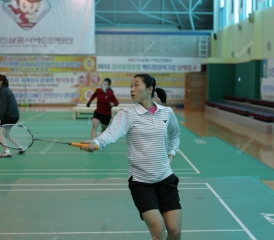
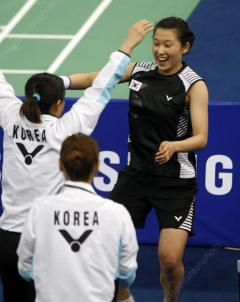
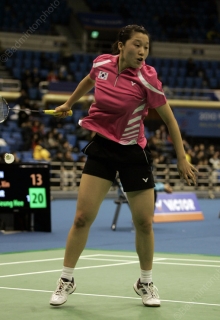
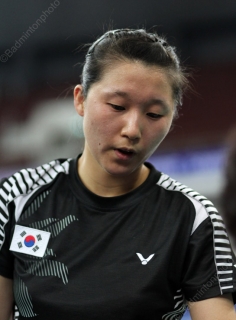
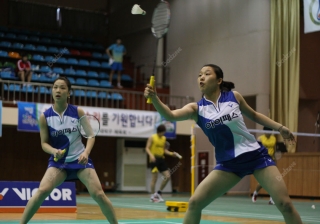

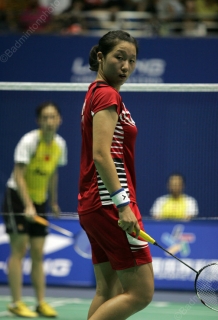

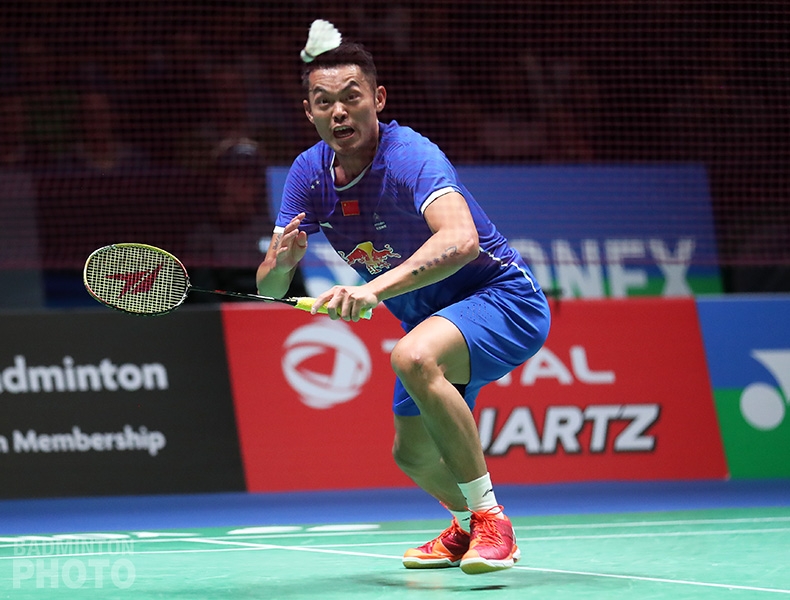
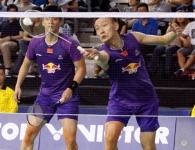
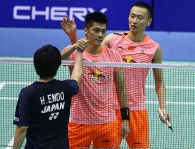
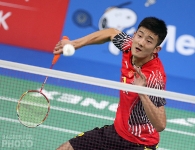
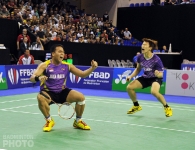
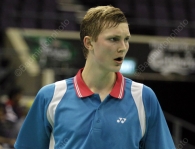
Leave a Reply